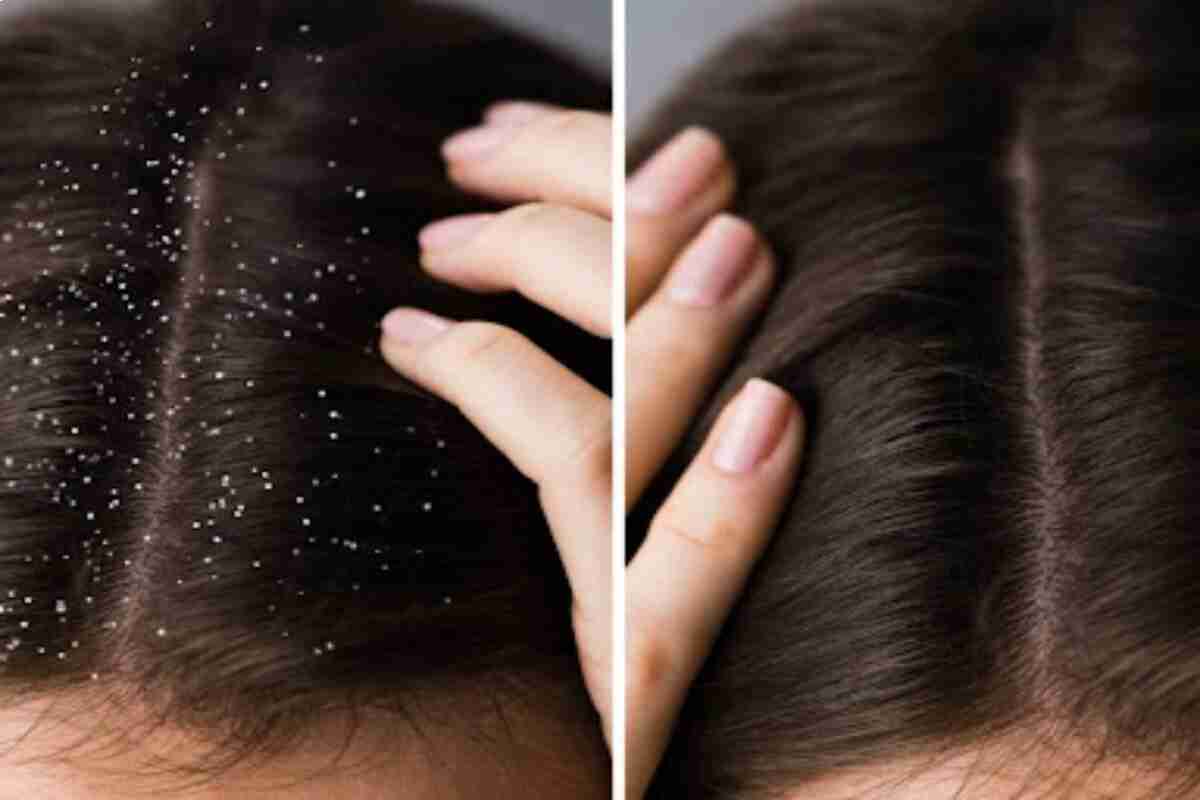Hair loss from dandruff does not occur. But the two may also be connected. Both dandruff and hair loss can be caused by some infections and medical conditions. Dandruff is very common. If the dandruff is severe, people with dandruff or dandruff like symptoms might lose hair.
The dandruff is not its own cause of hair loss. Instead it is the reason behind dandruff that also causes hair loss. However, very severe dandruff may not only damage the scalp or hair follicles, but may even lead to hair thinning or stop growing. If a person starts getting hair loss and suspects dandruff is the cause they should see a dermatologist to check that they’re not dealing with something else.
In this article, we cover dandruff and hair loss, prevention, and the times to see a doctor.
Can dandruff cause hair loss?
Dandruff is dry, itchy flakes of skin that develop on the scalp. This is known as a symptom, not as a specific diagnosis. Dry skin, diet, stress and some shampoos and hair products can all cause dandruff. Hair loss is not caused by Dandruff itself. Severe dandruff can leave a person scratching their scalp so hard that they injury it though.
Repeated inflammation of the hair follicles can cause damage and scarring, put a halt or slow hair growth. It can lead to weak or thinning hair. Aggressive brushing of the hair or twisting, or even scratching of the scalp, can leave existing hair scarred which may worsen the hair loss.
Dandruff or flaky skin on the scalp can be caused by some medical conditions, including seborrheic dermatitis, eczema, scalp psoriasis, and scalp ringworm. In fact, some of these are conditions that cause hair loss.
What can cause both dandruff and hair loss?
Dandruff is caused by any condition that causes skin to flicker or the outer layer of skin wore at a remarkably quick rate. These conditions also may cause hair loss if a person does not go to see a doctor.
The following conditions can cause both dandruff and hair loss:
Fungal infections: Itching on the scalp may develop from tinea capitis, or ringworm. Others develop dry flakes or blisters and some loose their hair in clumps. Dandruff symptoms can also be caused by some other fungal infection which also causes hair loss. Treatment of these conditions can be treated with antifungal medicines.
- Scalp psoriasis: The scalp can also be affected by the autoimmune condition psoriasis, which results a scaly, itchy patch forming. It is not called dandruff, however, it has dandruff related symptoms. Scaly patches may develop in bald spots where a person may notice is also bald.
- Folliculitis decalvans: This is a rare inflammatory condition that destroys hair follicles. It also causes itchy red patches to appear on the scalp. This condition will cause itching to a person so then they think that they have dandruff.
- Lichen planopilaris: Lichen planopilaris is more common in women who develop a dry, flaky rash on the scalp. In addition, it can make the hair fall out in clumps. Treatments for dandruff will not help this condition, but the symptoms are indicative of dandruff.
- Seborrheic dermatitis: Any part of the body can be affected with seborrheic dermatitis. As a rule, it affects the scalp, bringing most often a red, grayish scaling rash that itches and greasy patches. If left untreated, it may cause hair follicles damage. Scratching the area aggressively may increase the damage done.
When a person scratches their scalp or twists their hair to try and help get rid of what is making it itch or burn, the condition causing hair loss will cause much more hair loss. For children in particular, scalp pain may provoke them to pull the hair.
Other causes
Him long isn’t linked to him dandruff, though it happens with both. Some people may have dandruff, perhaps due to dry skin, as well as a condition that causes hair loss, such as:
- Nicole told reporters that both he and his father had suffered from male pattern baldness, a hormonal type of hair loss common to both men and women.
- infection, injury or stress leads to hair loss called telogen effluvium
- one of the autoimmune condition—alopecia areata
- scarring (or inflammation) of the scalp
- scalp infections
Prevention tips
People with a history of dandruff may experience infrequent flares of dandruff, even after successfully treating it.
The following are some strategies that can prevent dandruff-related hair loss:
- If dandruff shampoo or other treatments don’t clear the dandruff, see a dermatologist or other healthcare provider.
- If the hair comes out in clumps, however, seek medical help — this may indicate a problem with another part of the scalp or hair itself.
- Shampoo the hair regularly. Washing less often may increase your risk of dandruff. Caucasian and Asian people should wash their hair daily, and African Americans should wash their hair weekly, according to the American Academy of Dermatology.
- Follow carefully the instructions for use painted on the dandruff shampoo bottle. However, other shampoos must stay on the scalp several minutes before working.
- Do not aggressively brush or twist the hair and mass it or scratch the scalp. If the itching just has to be stopped, seek advice from your healthcare provider about medication to take for itching.
- Avoid very tight hairstyles. These can damage the scalp and hair follicle causing brain to slow down the hair growth. The hair may also break if the hair is in tight hairstyles.
- Do not go to sleep without treating dandruff. If dandruff shows up, use a dandruff shampoo at the very first sign and get medical advice if symptoms don’t improve in a week or two.
- There are people who may find that their dandruff shampoo makes the hair look dry or even dull. Dry, damaged hair is weak and breaks off more easily, is prone to falling out. When you have dandruff you need to use a high quality conditioner.
If the damage persists, try alternating dandruff shampoo with another shampoo.
Summary
Dandruff is very common — and most people can control the symptoms with home treatment. Disorder owners shouldn’t necessarily lose their hair. On the other hand, untreated dandruff may be the reason for hair loss. Even if dandruff isn’t causing the problem, it can damage the scalp and speed up hair loss from other causes. There are many conditions which can be mistaken for dandruff. If home treatment doesn’t work and if the itching grows too painful or if the hair keeps falling out, seek dermatologist treatment.
Related Pages:


